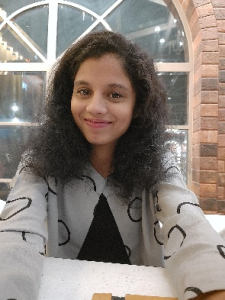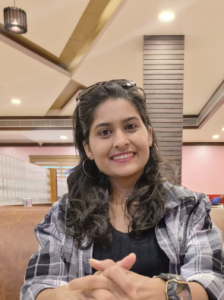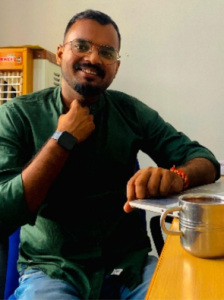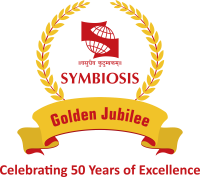Doctoral Scholar
Doctoral Scholar with SCCCS
-
 Ms. Rashmi S. Dhanwar
Ms. Rashmi S. DhanwarPh.D. Scholar
M.Sc. (Microbiology)
MH-SET (Maharashtra State Eligibility Test)
phdgrad.rashmi.dhanwar@siu.edu.in
Broad Areas:
|
Specific Areas:
|
-
 Ms. Rupali S. Thakur
Ms. Rupali S. ThakurPh.D. Scholar
M.Sc. Biotechnology
PET (PhD Entrance Test Pune University)
GATE: The Graduate Aptitude Test in Engineering
phdgrad.thakur.rupali@siu.edu.in
Rupali received her Master’s in Biotechnology from Modern College, Ganeshkhind Savitribai Phule Pune University (SPPU), Pune. Her area of interest is Microbiology and Molecular Biology, with a particular focus on Residual antibiotics and their impact on ecological functionality, microbial community structure and spread of antimicrobial resistance. She is currently working as a full-time PhD student at Symbiosis Centre for Climate Change and Sustainability (SCCCS) under the mentorship of Dr Om Prakash. Her PhD project is entitled “Impact of Residual Antibiotics on Microbial Community Structure and Functions from Hospital and Pharmaceutical Wastewater Impacted Soil and Sediment Ecosystems”, where she aims to investigate the residual concentration of antibiotics from different classes. How do these concentrations impact microbial communities’ structure and structure-related functions from impacted ecosystems? How do these ecosystems play a role in developing and spreading antimicrobial resistance?
Broad Areas:
|
Specific Areas:
|
-
 Mr. Adarsh Kumar Singh
Mr. Adarsh Kumar SinghPh.D. Scholar
M.Sc. (Microbiology)
SET (PhD Entrance Test Pune University)
SET-Rajasthan: State Eligibility Test, Rajasthan
GATE: The Graduate Aptitude Test in Engineering
phdgrad.adarsh.singh@siu.edu.in
Broad Areas:
|
Specific Areas:
|


